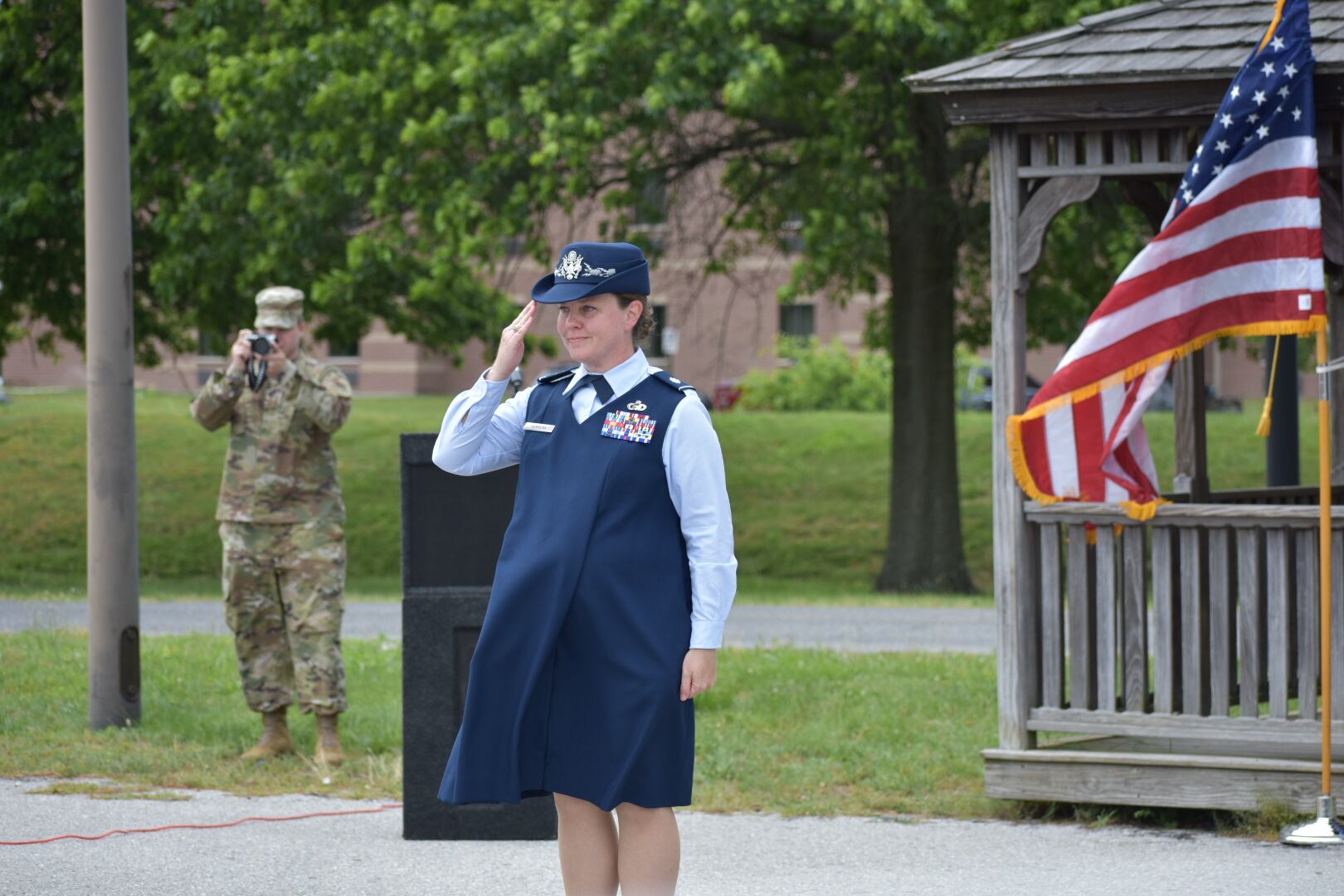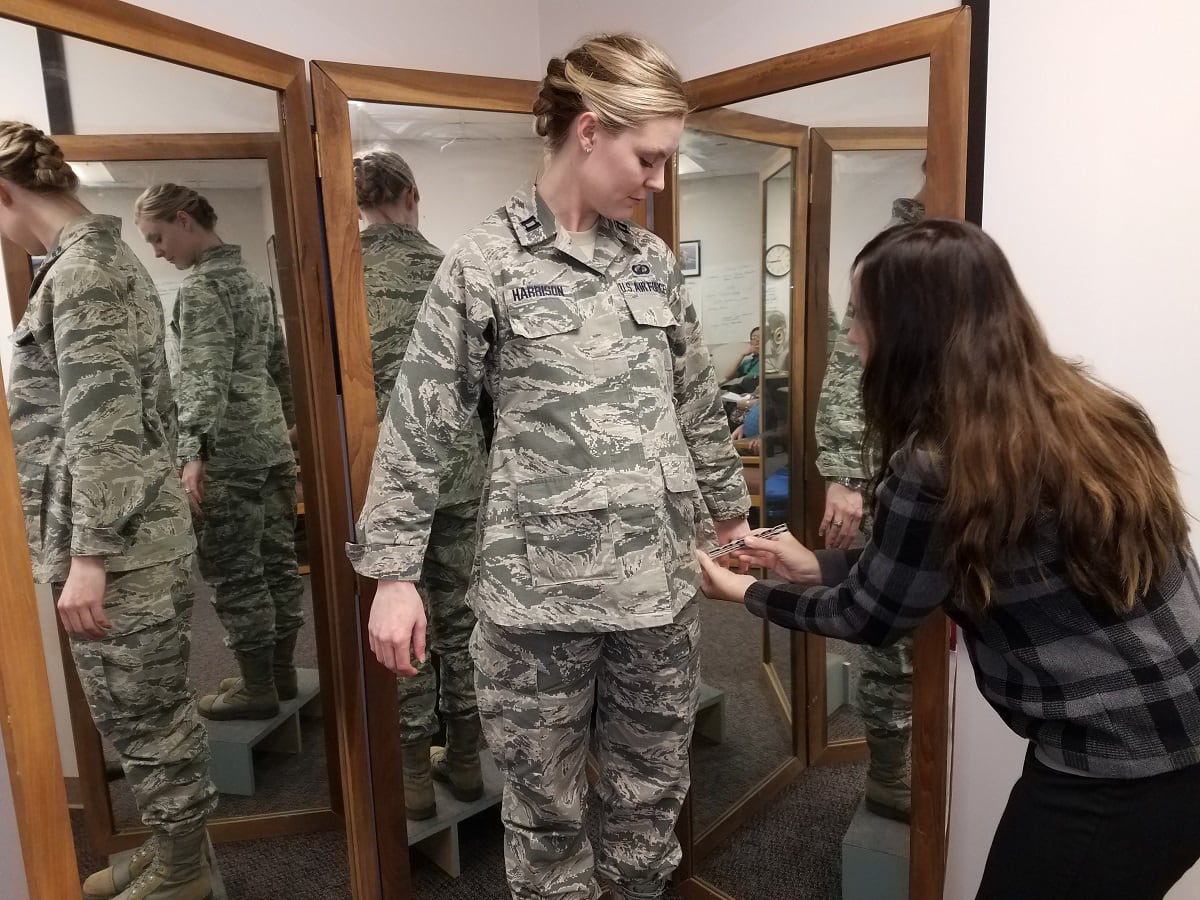A noncommissioned officer is working with Air Force headquarters to formally publish a guide to the service’s rules around pregnancy and postpartum life after struggling as a new mom herself.
When Tech. Sgt. Nancy Thompson gave birth to her daughter, Isabel, in 2019, she found herself lost and overwhelmed in a sea of information for new mothers that was spread across the Air Force.
She thought she had one year to spend with her baby before the Air Force could assign her to a new job overseas. Then she got orders to ship out to South Korea after only six months.
“I thought, there’s no way I could be [transferred], because I should have a 12-month grace period,” Thompson, a communications security manager for the Joint Staff’s command, control, communications, computers and cyber directorate at Army Garrison Yongsan-Casey in Seoul, told Air Force Times in a June 30 email.
RELATED

She discovered the Air Force Personnel Center had never marked her down for a post-delivery assignment deferral — a code Thompson said she didn’t know she was supposed to have. Multiple other moms, including some who were assigned to South Korea as well, weren’t aware of it either.
“It blew my mind how this wasn’t common knowledge and how we were not informed nor empowered to have this information,” Thompson said. “It infuriated me.”
She was eventually cleared for the full yearlong postponement and, in July 2020, moved without her husband or child from Shaw Air Force Base, South Carolina, to South Korea for the next year. At the same time, she saw female troops and veterans constantly ask the same questions online about pregnancy-related regulations over and over because the information is hard to find.
If she was struggling to understand the rules and the available options around childbirth, Thompson thought, so were other parents and their commanders. So she decided to do something about it.
Thompson spent three or four hours a day during her two-week quarantine upon arriving in South Korea last year scouring Air Force instructions and other guidance for helpful details on navigating childbirth. She compiled the information into a nine-page manual for active-duty airmen that walks through issues from physical fitness to enrolling kids in TRICARE to pelvic floor therapy.
RELATED

The guide offers brief explanations of how to handle each step of pregnancy while serving, with links to specific Air Force regulations and other helpful forms and websites.
Thompson made sure to touch on post-delivery issues because she unexpectedly suffered from postpartum anxiety, a problem she feels isn’t talked about as widely as postpartum depression.
“I felt very scared for my daughter’s life, not because I wanted to hurt her but because I was very anxious of something bad happening to her,” like constantly fearing tripping and accidentally killing the baby, she said. “I was afraid of holding her at times. And I couldn’t be around knives or sharp objects — they made me feel very anxious.”
She stressed that the document she created isn’t only for moms.
“Male supervisors can use this information to help their pregnant airmen navigate motherhood and provide them knowledge,” Thompson added on Facebook. “Doesn’t hurt to know what your troops can go through.”
She made the first version of the manual in December 2020 and, in February, posted it on a popular Facebook page created for airmen to share professional development ideas during the coronavirus pandemic.
RELATED

Hundreds of people reached out to ask for a copy, praise her work or share their own struggles. It grew so popular that Thompson added a direct link to the guide instead of asking people to email her for it.
Her work caught the eye of Air Force leadership, and Thompson is now partnering with the service’s Women’s Initiative Team to make the guide an official document. She hopes to publish something by the end of the year. A member of the WIT did not respond to questions about the guide on Tuesday.
The service could follow the pregnancy guide with a similar resource for single parents as well, she said. Watching her husband, Scott, a civilian dependent, raise Isabel, now 2, for a year has shown Thompson that the military can offer more support to those families.
In the meantime, the manual is still evolving. Thompson wants to update it with any new information once every few months, and has added more on the New Parent Support Program, the Air Force Aid Society’s Bundles for Babies program, post-delivery deferments, miscarriages, stillbirths and other topics.
“I am so happy and derive such a sense of joy that women and supervisors feel empowered by this information,” she said. “It’s what I would have wanted for myself when I was newly pregnant.”
Rachel Cohen is the editor of Air Force Times. She joined the publication as its senior reporter in March 2021. Her work has appeared in the Washington Post, the Frederick News-Post (Md.), Air and Space Forces Magazine, Inside Defense, Inside Health Policy and elsewhere.




